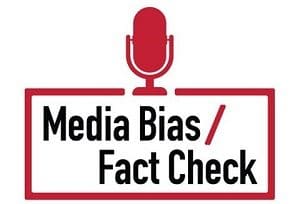
PRO-SCIENCE
These sources consist of legitimate science or are evidence based through credible scientific sourcing. Legitimate science follows the scientific method, is unbiased, and does not use emotional words. These sources also respect the consensus of experts in the given scientific field and strive to publish peer-reviewed science. Some sources in this category may have a slight political bias but adhere to scientific principles. See all Pro-Science sources.
- Overall, we rate The Skeptic’s Dictionary a strong pro-science source that always sources credible information. We also rate them Very-High for factual reporting for the same reasons.
Detailed Report
Bias Rating: PRO-SCIENCE
Factual Reporting: VERY HIGH
Country: USA
Press Freedom Rating: MOSTLY FREE
Media Type: Website
Traffic/Popularity: Minimal Traffic
MBFC Credibility Rating: HIGH CREDIBILITY
History
Founded in 1994, The Skeptic’s Dictionary provides definitions, arguments, and essays on subjects such as the supernatural, occult, paranormal, and pseudoscientific. The Skeptic’s Dictionary is a collection of cross-referenced skeptical essays by Robert Todd Carroll, published on his website skepdic.com and in a printed book. The website contains 850 entries edited by a former professor, atheist, and skeptic Robert Todd Carroll (1945–2016).
Read our profile on the United States government and media.
Funded by / Ownership
The website was owned by Robert Todd Carroll until his passing in 2016. The website remains online and generates revenue through the sale of his books.
Analysis / Bias
In review, The Skeptic’s Dictionary is a website and a book that has entries on pseudoscientific, occult, paranormal, and other pseudoscientific beliefs in an encyclopedic order. For example, click on Chemtails and you will get a history of the conspiracy and then a proper debunking with numerous credible citations to support the author. In general, The Skeptic’s Dictionary is timeless and a necessary resource for debunking conspiracy theories and pseudoscience.
Failed Fact Checks
- None in the Last 5 years
Overall, we rate The Skeptic’s Dictionary a strong pro-science source that always sources credible information. We also rate them Very-High for factual reporting for the same reasons. (D. Van Zandt 8/19/2016) Updated (01/13/2023)
Source: http://www.skepdic.com/
Last Updated on July 1, 2023 by Media Bias Fact Check
Do you appreciate our work? Please consider one of the following ways to sustain us.
or
Left vs. Right Bias: How we rate the bias of media sources

